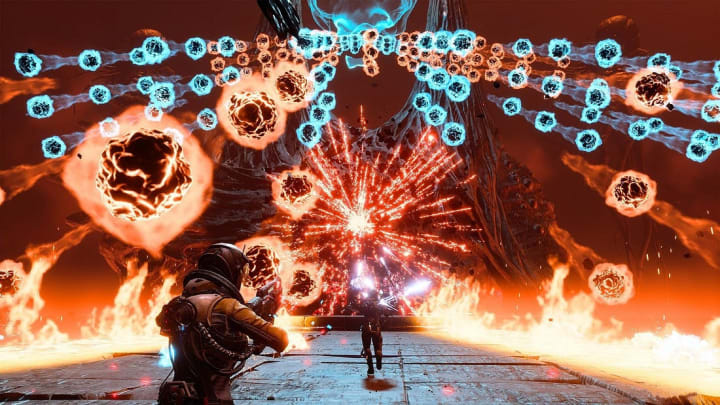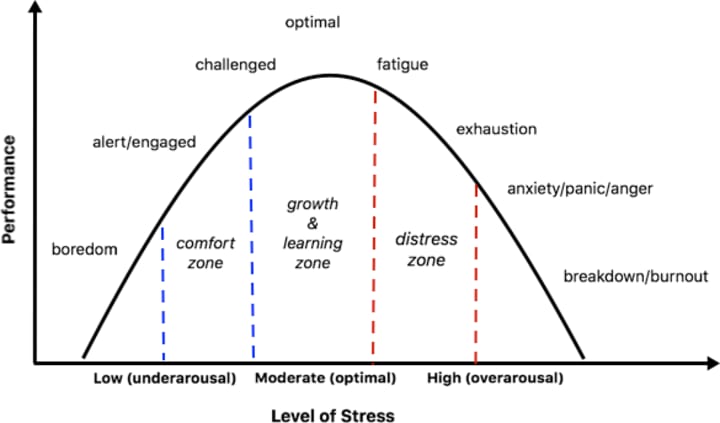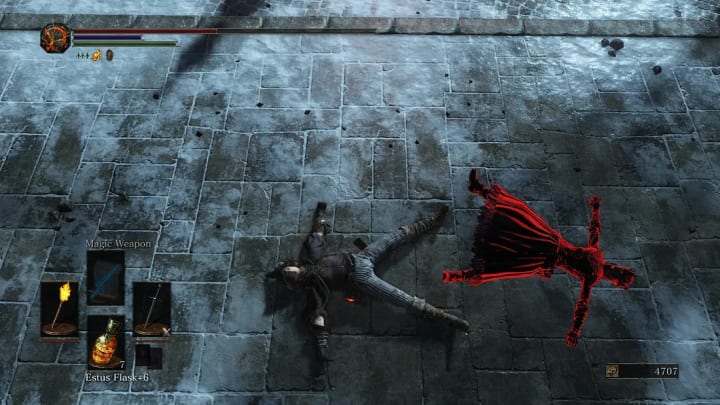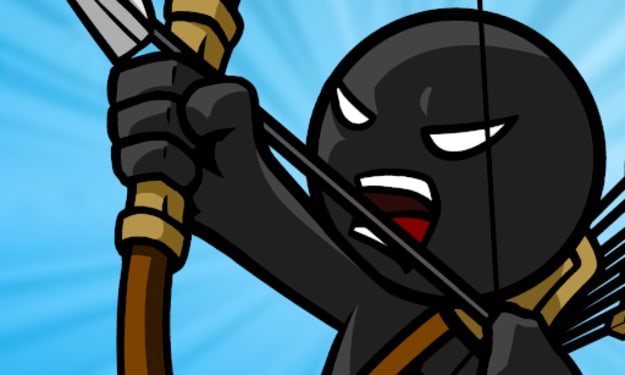The Psychology Behind Difficult Video Games
Are we determined or subconsciously masochistic?

Video games have come a long way from their humble beginnings in the 1970s. Today, they are a multi-billion-dollar industry with a wide range of genres, styles, and levels of difficulty. While casual and easygoing games like Fall Guys, Party Animals, and the Watermelon Game dominate the market for its simplicity, their extremely challenging and difficult counterparts are on the rise within the mainstream.
But why are difficult video games so appealing? What is it about the struggle and the frustration that keeps players coming back for more? In this article, we’ll explore the psychology behind difficult video games and uncover it might be deeper than you think.
Defining Difficulty
When we ask ourselves, ‘what makes a video game difficult?’ there are a number of gameplay features, mechanics, and designs that can be defined as the characteristic of a difficult video game. However, it is not that simple, as difficult video games are characterized by a combination of specific elements.
From demanding precise control to giving players next to nothing resources and instructions to facing bosses that can kill them in one hit, these games are designed where even small mistakes can lead to significant setbacks. In fact, the surge in popularity of difficult video games is not a recent phenomenon, but it has been built on the foundation of several iconic titles over the years.

Games such as Dark Souls, Demon Souls, Cuphead, The Binding of Isaac, Hollow Knight, Super Meat Boy, GTFO, Death’s Door, Bloodborne, Returnal, and Elden Ring are some of the most critically acclaimed titles that has perfected the art of presenting players a difficult and challenging experience.
These games have set the standard for challenging gameplay, pushing the boundaries of what players can endure while still remaining enjoyable and rewarding. However, that still doesn’t change the fact that games can sometimes be bane of our existence when playing.
The Underdog’s Journey
One of the fundamental psychological aspects that make difficult video games appealing is the gratification of overcoming challenges. Human beings are wired to derive a sense of accomplishment from overcoming obstacles, and video games provide a safe and engaging platform to experience this.

Difficult games offer a unique opportunity for players to push their limits and test their problem-solving abilities. This underdog’s journey to overcome a dangerous and impossible task, allows player’s to go on their own Hero’s Journey that is reminiscent of Joseph Campbell’s narrative framework of the same name.

Every Soulsborne game from Fromsoftware studios has their players go on the Hero’s Journey in their own dark subverted way. From throwing players into a dark dangerous world filled with monsters to leveling up and becoming strong to defeat and overcome their adversaries, players become immersed in their own personalized journey from underdog to a hero.

While Soulsborne games are particularly notorious for pushing players beyond their limits with their super difficult boss battles, there is no denying that the thrill of finally defeating a boss that has killed the player over a dozen times is an incredibly rewarding that every player celebrates over. This personalized journey of overcoming the odds greatly appeals to players and is one of the reasons why they keep coming back for more.
The Flow State
Difficult video games often excel in creating what psychologists refer to as the “flow state.” Coined by Mihaly Csikszentmihalyi, the flow state is a mental state in which a person is fully immersed in an activity, feeling focused, energized, and satisfied.
When the challenge level in a game closely matches a player’s skill level, they are more likely to enter the flow state and their odds of defeating a challenging foe increases tenfold. This level of concentration is important because it allows players to focus and react accordingly to their surroundings.

We see this often in the Bullet Hell genre with games like Returnal, Enter the Gungeon, and Cuphead, where after several attempts, players enter a state of flow and reach a perfect balance of immersion and concentration in order to defeat a boss/level. However, depending on the boss design and the player’s experience, a second or third phase in a boss battle can throw player’s out of their flow state and succumb to a new wave of attacks.
This delicate equilibrium is what makes difficult games so psychologically alluring. The fact that players feel both challenged and in control of an insane situation can lead to an enhanced sense of engagement and immersion where games in other genres simply fall short.
Becoming The Master
Difficult video games often provide players with a sense of mastery that can be deeply satisfying. As previously mentioned, the ‘Flow State’ is what players psychologically depend on in order to defeat an incredibly difficult boss. However, mastering a extremely difficult boss encounter requires a prolonged connection to the ‘Flow State’.
This prolonged connection can only be acquired if players invest a significant amount of time learning and memorizing their encounters. As players invest more time and effort into mastering the game’s mechanics, they become increasingly skilled at navigating the game world. Like mastering any skill, this feeling of growth and self-improvement can be highly motivating especially for those who put in a significant amount of hours into the game.

This process of mastering in-game encounters mirrors real-life skill development, where dedicated individuals gradually become more proficient in their chosen pursuits. The player ‘Let Me Solo Her’ earned viral sensation in the Elden Ring community for his mastery of defeating the hardest boss in Elden Ring.
His perfect dodges, counter attacks, and timing allows him to stand toe-to-toe against one of the hardest bosses in all of video game history. In fact, the game’s publisher, Bandai Namco has recognized his mastery and awarded him for his dedication and efforts. This sense of mastery in difficult video games fosters a sense of accomplishment that is entirely unique to the genre and players become invested in their progression, resulting in greater satisfaction and a desire to continue.
Too Stubborn To Give Up
Now this may seem a bit counterintuitive, but frustration is also a significant psychological driver in the appeal of difficult video games. While excessive frustration can be detrimental, moderate frustration can fuel determination and motivation.

The Yerkes-Dodson Law describes the relationship between mental pressure and performance. It suggests that an optimal level of pressure or stress can enhance performance, but excessive stress can lead to decreased performance. So when players encounter challenging segments that repeatedly thwart their progress, they become increasingly motivated to conquer them unless they become too pressured to perform.

This frustration-motivation cycle can be surprisingly satisfying for most players, as it amplifies the sense of accomplishment when players eventually succeed. Considering how difficult games often aim to maintain players within the “sweet spot” of optimal pressure, this is why games like Dark Souls and Bloodborne always try to find new devious ways to challenge players. This concept helps explain why players are drawn to games that are demanding in time, effort, and skill.

However, if we take a more poetic approach to explain this, we can simply sum it up as our tendencies to test our psychological resilience against significant sources of stress. Difficult video games practically serve as a training ground for resilience training where players are forced to adapt, learn, and become more generally resilient both in the gaming world and even in their real lives. Let’s be real, if you can beat Elden Ring with only your fists, then you can probably beat any game after that.
Trauma Bonding
Of course, the appeal of difficult video games extends beyond individual means and achievement. Many challenging games have vibrant online communities where players can share their experiences, strategies, triumphs, or even just bond from their traumatic boss encounters.

The psychology behind community and social interaction always plays a significant role in video games, but even more so in notoriously difficult games. It is likely due to the result of these communities offering a sense of belonging and camaraderie that is forged through the hellfire of frustration and achievement. The shared experiences of struggling through tough levels or defeating formidable foes create a strong bond among players, whether if its a single-player game or a multiplayer one.
Down To Git Gud?
The psychology of difficult video games is a complex tapestry of reward, challenge, mastery, and community. Players are drawn to these games not just for the sake of difficulty, but for the profound sense of satisfaction that comes from overcoming hurdles.

As the gaming industry continues to evolve with more immersive gameplay and storytelling, these psychological factors will likely remain at the core of what keeps players coming back to difficult souls-like games. Unless you are into for masochistic reasons, cause that is something completely different.
If you liked what you read, be sure to like the heck out of it and follow for more related content!
About the Creator
Jay Kobayashi
A starving writer from LA who aspires to be plagiarized one day. I like to write about academic pieces that identifies philosophy and psychology in pop culture, and sometimes random fun pieces that interests me or the algorithm!






Comments
There are no comments for this story
Be the first to respond and start the conversation.